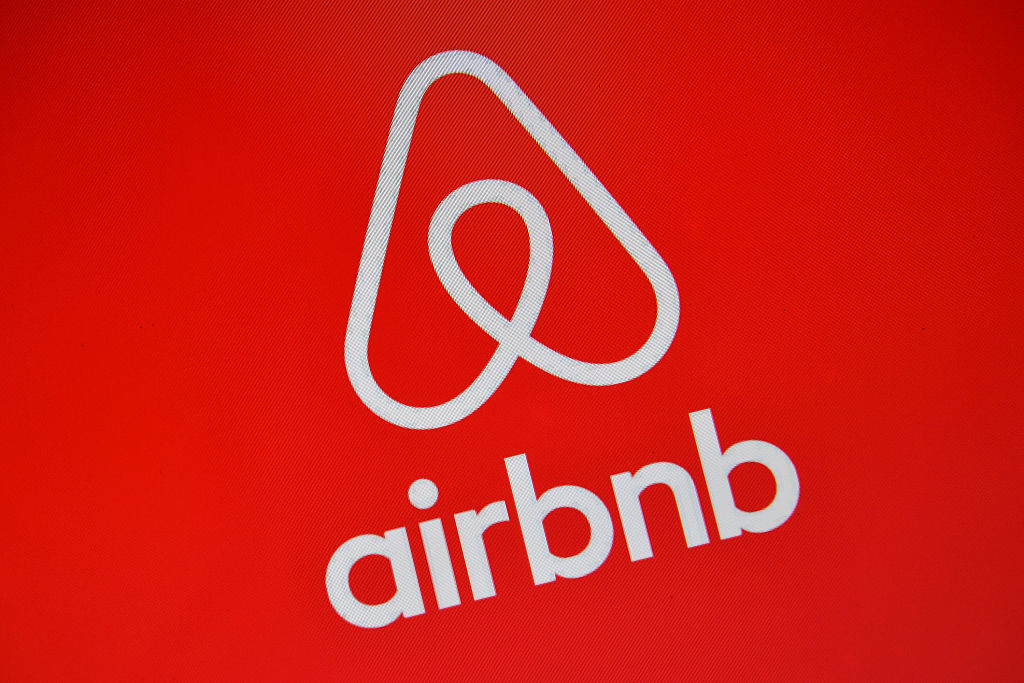
(Bloomberg) — The bitter, multi-million dollar battle over home-sharing in Jersey City has come to an end — with Airbnb Inc. losing the fight.
Early results — which need to be officially certified by the local county clerk’s office — show about 70% of residents voted to restrict home-sharing companies. The blow comes as the $31 billion tech juggernaut, which is preparing to go public next year, strives to resolve regulatory overhang around the U.S.
Jersey City, a four-minute train ride from Manhattan, has become crucial territory for Airbnb as a popular and affordable lodging alternative to New York. It’s in close proximity to the Big Apple’s main tourist attractions, but doesn’t fall under New York City’s stringent short-term rental rules that have frustrated Airbnb and its host community for years.
Airbnb sunk $4.2 million into its campaign to win Jersey City. Its most powerful opponent in New York, the Hotel Trades Council, spent more than $1 million beefing up support for the other side.
The 45-day war divided the city’s residents and descended into accusations of lies, misinformation and harassment between Airbnb and its critics.
The new rules impose a 60-day cap on rentals where the owner is not present. They also forbid rentals in buildings with more than four residential units — including the luxury high-rises in the gentrified downtown and along Jersey City’s revived waterfront.
Airbnb declared the proposed regulations an outright ban on listings and said they were “crafted at the behest of the hotel industry’s special interests.” The city council said the “commonsense regulations” were enforced because Airbnb listings had increased ten-fold since 2015 and showed no signs of abating.
At rallies last week, residents in support of Airbnb chanted “ban the ban” while carrying signs that read: “My Home. My Rules.” Meanwhile, those seeking stricter regulations accused Airbnb of destroying neighborhoods and flooding New Jersey’s second most populous city with tourists. Last year, the short-term rental economy pulled in more than 181,000 guests to Jersey City and boosted the local economy by $40 million last year, according to Airbnb.
The ballot was called after Airbnb and its hosts challenged the city council ordinance, which was passed in June. Both parties spent the past few weeks spreading their message by door-knocking neighborhoods, paying for television advertisements, dropping leaflets and flooding social media. The Airbnb-funded political action committee Keep Our Homes knocked on nearly 110,000 doors, while Jersey City Mayor Steven Fulop was seen canvassing at subway stops at 6 a.m. in recent weeks.
Fulop — once an ally of Airbnb — tweeted: “To date, Airbnb has spent millions to push misinformation to Jersey City residents. They care about their IPO/investors + only their IPO/investors.”
Before the results came in Tuesday night, the Keep Our Homes campaign tweeted out a video of Fulop encouraging a resident at a polling booth to “vote yes.” Fulop said he never handed out any material in the polling room or violated the law.
In an emailed statement, Graeme Zielinski, campaign manager for Keep Our Homes, said the video showed Fulop engaging in prohibited electioneering with a “shocking disregard for law.” “There can be no doubt that this election took place under a cloud,” Zielinski said in the statement. “We are evaluating our options going forward.”
Meanwhile, Fulop said he was proud of the result and hoped that other cities around the world take notice. “This is a resounding statement. Airbnb spent $5 million to mislead people and that was rejected and at the end of the day the public has spoken,” he said.
More Must-Reads from TIME
- Donald Trump Is TIME's 2024 Person of the Year
- Why We Chose Trump as Person of the Year
- Is Intermittent Fasting Good or Bad for You?
- The 100 Must-Read Books of 2024
- The 20 Best Christmas TV Episodes
- Column: If Optimism Feels Ridiculous Now, Try Hope
- The Future of Climate Action Is Trade Policy
- Merle Bombardieri Is Helping People Make the Baby Decision
Contact us at letters@time.com